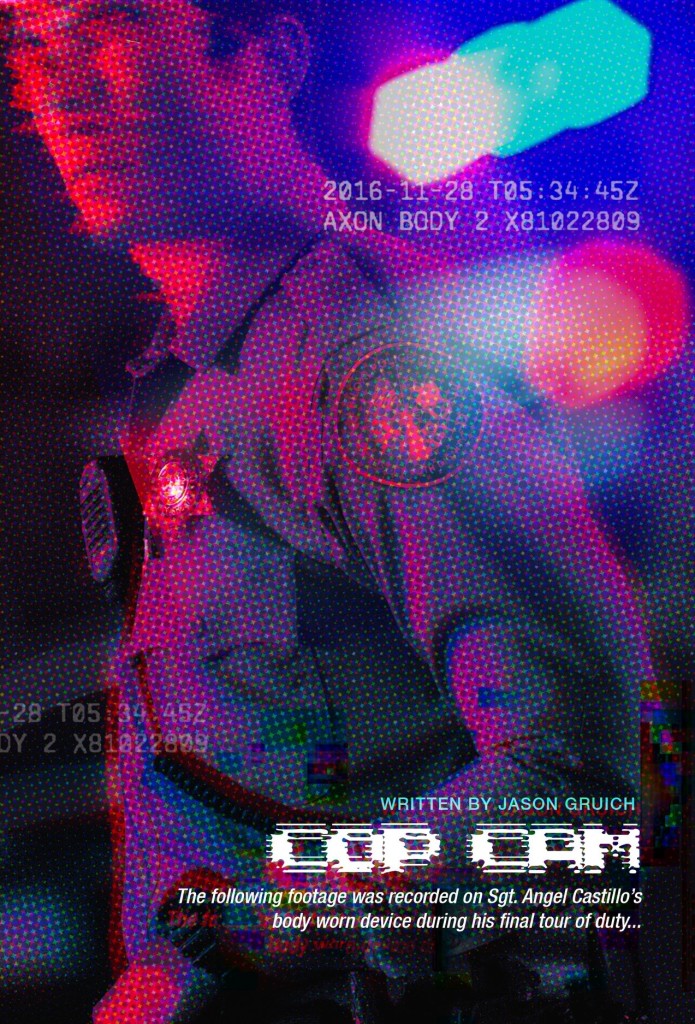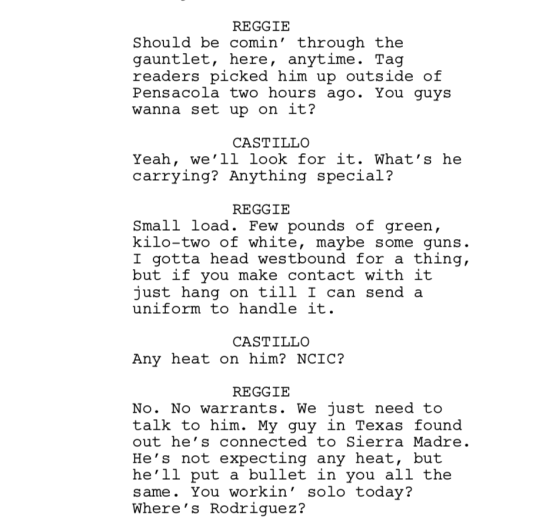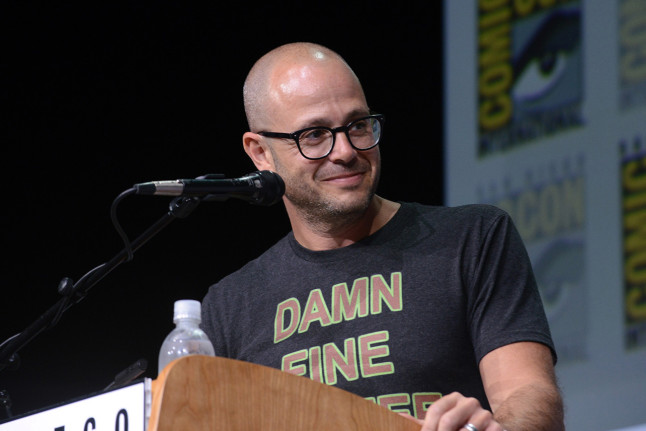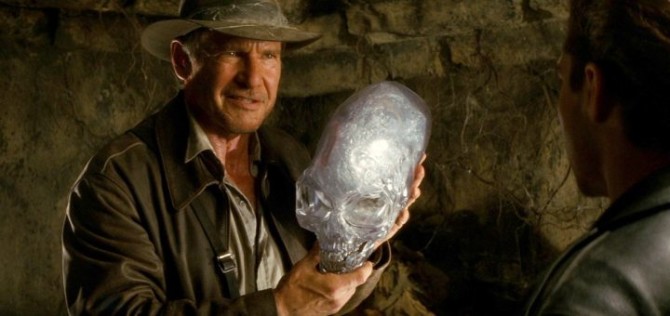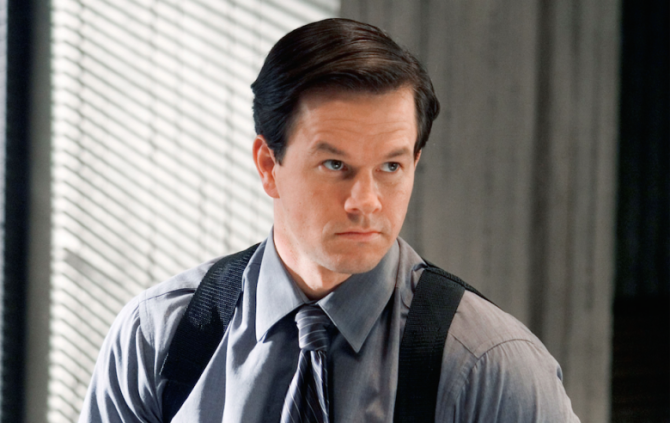Genre: Found footage/Crime-thriller
Premise: Told through the lens of a police-worn body camera, a retiring cop with a baby on the way faces the most harrowing shift of his career after a traffic stop devolves into a violent mess affecting both sides of the law.
Why You Should Read: I’ve always thought a found-footage film involving a cop’s body camera would be an interesting concept to explore. Police-worn body camera footage persists as some of the most controversial, yet fascinating forms of real-time-media in existence today. Think about it, when’s the last time you didn’t click on a “contains graphic content” police video that was shared to social media? The footage always tells a story, but rarely captures the facts in their entirety. As a police lieutenant, I watch countless hours of body cam footage from the officers under my watch and am rarely ever bored. On the contrary, they typically inspire movie ideas for my scripts. For “Cop Cam”, I wanted to infuse elements from some of the most disturbing videos I’ve encountered into a grounded, found-footage crime-thriller told from the first-person perspective of one cop’s final day on duty. While most found footage films deal in supernatural horror, I aimed to bend the genre here into purely thriller territory, although a lot of feedback has mentioned it certainly flirts with horror. The script just received positive coverage from WeScreenplay: “This high-octane, action-packed thrill ride is a rip-roaring page-turner told with unflinching authenticity. The amount of story, twists, and turns in this tight script is a strong showing of narrative economy. A cops and robbers caper that unfolds like a beautiful car wreck with a continually worsening state of affairs that’s likely to appeal to mass audiences. This is one flat out cool movie.”
Writer: Jason Gruich
Details: 92 pages
It’s funny that just Wednesday, I reviewed a script, “Don’t Worry, Darling,” where the ‘What I Learned’ section touted the power of the “Beginning of the Second Act” twist. And, more importantly, the key to pulling it off, which is to keep the First Act short. That way we get to the twist faster. Because once they get to that twist, you’ve got’em. It’s only before the twist that you might lose them.
I bring that up because there were definitely moments early in Cop Cam where I was wavering. Jason did a nice job keeping the writing sparse so that the eyes moved down the page. But there were some scenes where I felt like we were dragging on. Conversations were taken to their logical conclusion and then they’d start talking about something else. And then, once that conversation was over, we’d switch over to another conversation that was similar to that one.
Now if I were Jason’s Storytelling Lawyer, I would argue that the longer First Act brings us closer to Angel. The longer we’re with this guy, the more we’re going to like him, which means the twist is going to hit us harder. And I understand that argument. When you weigh the pros and cons of long first acts, one of the pros is we get to know the characters better before they go off on their journey. I’m just worried because we live in a world that’s dominated by distraction.
Just last night, I was watching an episode of HBO’s, “Succession,” which at one point I paused because I had to answer an e-mail, which, after the e-mail, I remembered I still had to finish an episode of Million Dollar Listing on Itunes, which, after making dinner, I decided to pause so I could watch the first episode of the NFL’s, “Hard Knocks” on Youtube. At no point did I plan any of this. Each change resulted from a distraction. And I think this is the way a lot of people source their entertainment. If you’re not entertaining me, I have other options.
And the thing is, once Cop Cam gets to the twist, it’s unstoppable. It’s an almost perfect script. I was riveted from page 42 to 92. But we’ll get back to that opening in a minute. For those who haven’t had time to read Cop Cam, here’s a quick breakdown of the plot.
MAJOR SPOILERS FOLLOW!
40-something Sgt. Angel Castillo is ready to retire. His wife is pregnant and it’s a much better game plan to have a kid when you’re not putting your life on the line every day than when you are. So Angel’s got one day left on the job. He suits up and makes sure his glitchy cop cam is working.
It’s an eventful day. Castillo wrestles down a perp, and while putting him in the squad car, the perp spits on him. Castillo reacts, punching him. Unfortunately, someone records the incident on their phone and uploads it to Youtube. Very quickly, “Crazed Cop Punches Man in Handcuffs” goes viral. Not a big deal though. This is par for the course for a cop.
Castillo is then assigned to take down a drug car. Standard bust. Not supposed to be a big deal. He and his partner, Griffin, stop a van but it looks like they may have stopped the wrong car. There are three passengers in their twenties. The driver, Clay, is a white guy. Marcella is in shotgun and looks terrified. And Rico is in the backseat, looking even worse than Marcella.
Castillo’s assessment is that they’re just kids and starts to ask basic questions. Comfortable that this will be an uneventful stop, he takes his guard down. And that’s when everything goes wrong. As Castillo is talking to Clay outside, gunshots fire out the back of the van window. Castillo and Griffin take cover but they’ve got the jump on them. Seconds later Marcella comes over, puts a gun in Castillo’s face, and just like that – BAM – OUR MAIN CHARACTER IS DEAD.
Marcella is freaking out. She’s now a cop killer. Clay is terrified. Rico is yelling. All the while, Castillo’s cop cam is blurting out that backup is coming. Rico freaks and says to grab the thing. Marcella rips the cop cam out and the three run back to the truck and off they go. We’re now watching them through the cop cam. Marcella calls her uncle, tells him the bad news and asks what to do. He tells her to meet a point man at the highway stop up ahead. He also tells her what they need to do to Clay. And so – BAM BAM – Clay’s dead too. They cover his body with a blanket. Poor Clay. Just trying to get a head start on that student debt.
Marcella and Rico pull up to the truck stop to wait for the point man, but are horrified when a rent-a-cop, Winston, approaches them. They think they’re toast. But Winston is just an admirer of cars who likes to chat. And chat he does, blah blah blah, riffing about whatever comes to mind. Marcella and Rico exchange glances. Can you believe this? After Winston leaves and the two are trying to decide what to do, they see Winston coming back with another cop. And he’s pointing at them. Time to get out of here!
But before they can go, County Cop puts a bullet in Rico, who dies. Marcella speeds away but County Cop is on the highway behind her almost immediately. As he gets closer and closer, out of nowhere, he gets CLIPPED from behind by a truck, and his car goes zig-zagging off into a ditch. It’s their contact, Cartel Cowboy, who pulls up even with her and tells her to pull over. She does, reluctantly.
Cartel Cowboy says they have to move, get Clay’s body transferred. She helps him out, and as soon as they’re finished, he raises a gun, shoots Marcella in the eye. We’re with Cartel Cowboy now. Or, at least, that’s what we think. County Cop has emerged from his car crash and he’s ready to rock. He’s got the drop on Cartel Cowboy and shoots him dead. County Cop seems to be after one thing. He leans into the car – there it is: the cop cam! He grabs it and now County Cop becomes our POV.
I could keep going but I’d like to save some of the surprises for the script itself. You get the picture, though. The real main character is the cop cam itself, or, if you want to be specific, us. And it’s the uncertainty of where we’re going to end up next that makes this script so exciting.
There’s a lot to get to here and I don’t know where to start so I’ll start with the title page. I love that Jason puts “Written by Lieutenant Jason Gruich, Biloxi P.D.” It immediately lets us know that everything we’re about to see is based in real life police rules. A lot of times when you’re reading, something will happen that seems unbelievable, and often, because writers are the kings of making stuff up, we assume that you made it up. But when you know you have a real lieutenant writing a police script, you know that’s how it would go down.
With that said, I did have some issues with the first 40 pages. I didn’t feel like enough was happening plot-wise. Which is okay if you’re dramatizing scenes so that they’re entertaining. But most of those first 40 pages was exposition and set-up. If this was a ten page challenge script? I may not have continued. It would’ve been right on the bubble. With that said, Jason counteracts with a very vertical writing style. I don’t remember any description chunk lasting more than 2 lines. And there’s a ton of dialogue. So even though the story isn’t moving at a pace I’d like, he makes it really easy to get through it.
The strange thing about writing, though, is that sometimes a negative can become a positive. Here I am, reading through this with a very neutral eye. I’m staying with it, but I’m not fully engaged. And then, OUT OF NOWHERE, comes one of the best scenes I’ve read all year. The level of tension that builds during Castillo’s stop of the van is incredible. It’s a great scene. And I’m not sure it would’ve hit me as hard if the story was operating at a more entertaining clip. It was almost as if we were lured into that same sense of “everything is okay” that Castillo was when he put his guard down.
And then Castillo is killed and it’s like WHOA! This writer just pulled a Psycho. And it worked! Because one of the reasons Psycho is the classic that it is, is that it doesn’t just kill off its main character after 40 minutes. It makes you sympathize with the character who killed them, which is really hard to do. And that’s exactly what happened here. When we switched to Marcella, I was scared for her. This poor girl is in over her head and we’re hoping she can find a way out.
And for Jason to then kill off Marcella too?????? I was gobsmacked. I was in that space that every reader dreams of being in: “I don’t have any idea where this is going but I need to find out!” A long-time moviegoer only gets that experience three or four times a year. And somehow, Jason pulled it off. Usually, when your script is dependent on shock value, the story doesn’t live up to all the shock. But this story comes together quite nicely at the end. I was surprised.
Now.
It’s time for my main gripe and my call to Scriptshadow readers to help me out with this. This movie is dependent on the Cop Cam POV changes being organic and believable. And I had a few issues there. For starters, I wasn’t sure why Marcella would take the cop cam. My thinking would be that it could be traced. Isn’t that what all criminals are worried about? And this feels like the most traceable thing you could grab. So that’s my first request. Can someone come up with a reason why she would take the cam.
Next up, was it just me, or were there times in this script where you didn’t know exactly what you were looking at because you weren’t clear where the cop cam was? There were several times where I thought we may have taken an omniscient point of view, not unlike a master shot, until it was time to go back into the cop cam again. If you felt this, how would Jason write it so that it was clear where we were at all times? That’s critical when reading this because a producer is going to need to know where the camera is at all times to know if the gimmick works.
The next time I had trouble was when County Cop grabbed the cop cam and put it on his mirror. I suppose he’s picking up the camera for someone else so, even though we don’t know that yet, it makes sense in retrospect. However, why would he put it on his mirror? It seems a little too perfect. And then, the rest of the way through, I found myself wondering here and there, “Where is the camera?” If you had this same issue, tell us in the comments and explain why you think that was. Then, let’s try to fix it. How do we organically hand off this camera every time?
One last thought. A few of you mentioned cop cam movies in development. Can you provide more info? Because even if they are, I would be willing to bet my retirement fund that this script is better than whatever they have. So if someone were to pick this up, they’d easily have the best cop cam script in town.
[ ] What the hell did I just read?
[ ] wasn’t for me
[ ] worth the read
[x] impressive
[ ] genius
What I learned: This is basically the PERFECT SPEC. This is EXACTLY what you want to do with a spec script. It’s got a little gimmick to it. It takes place all in one day. The writing is very sparse. It’s 92 pages. If there was a class in writing the kind of spec that gets noticed the most, this script would be the ideal example. It stacks all the odds in its favor.
What I learned 2: It’s really good to have a script where people have to warn other people of spoilers. “Beware of spoilers” indicates that interesting enough things happen in the script that people are actually warning other people to avoid those things if they want the experience to be fresh. It’s not that every script needs to be a “Beware of spoilers” script to be good. But it definitely implies that a fun experience is ahead. Think about it. When someone says to you, “You need to watch One Man Cargo. Don’t let anybody spoil it for you ahead of time though!” Of course you’re going to go and watch One Man Cargo as soon as possible.
Note about the comments: I didn’t want to lose some of the script reactions from the earlier thread so I’m combining this post with the last one. If you want to see the latest comments, you can use the Disqus drop-down menu below to sort by “Newest.”
Note: Getting a bunch of e-mails to review “The Hunt” since it’s stirring up all this controversy. Well, I already reviewed it a few months ago. Going to repost the review now. Enjoy!
Genre: Thriller/Social Commentary
Logline: A group of rich liberal elites drug and kidnap ten rednecks, drop them in the middle of nowhere, and start hunting them.
About: Giant spec this one! It’s written by Damon Lindelof and one of his top writers on The Leftovers, Nick Cuse. As Blumhouse expands its horror empire into new sub-genres, The Hunt is one of these new social commentary horror-thriller movies that are starting to make their move in the industry. This is a great sub-genre to be writing in right now. Everyone wants a piece of it.
Writers: Nick Cuse & Damon Lindelof
Details: 90 pages (2-14-18 draft)
We are in the midst of a revolution!
Asides to the reader. Personal opinions in the description. Over-the-top writing. Controversial subject matter. Micro page counts.
Welcome to screenwriting in 2019. With Get Home Safe and now, The Hunt, screenwriting will never be the same (I’m half-serious, by the way).
Remember in my newsletter when I said that the next big thing is going to be fun social commentary thrillers? It looks like Damon Lindelof received my newsletter, grabbed his time machine from Lost, and went back to [checks date on script], February 14th, 2018 and wrote this, the sneaky little devil.
The Hunt updates one of the oldest story ideas out there – hunting humans for sport. But it adds a quirky modern twist. The people being hunted were baaaad boys and girls on Twitter. So did they deserve it?
We start off in a plane. A nice plane. First class.
Then, out of nowhere, a man stumbles up from the coach section, mumbling like an insane person. The first class occupants slaughter him dead. Who the heck was that and why did they just kill him? The Hunt asks that question a lot. No, I’m talking literally here. Every other sentence is, “What just happened?? Who was that?? What’s going on??”
Cut to the middle of a field. Ten rednecks awaken. They’re all gagged. The only thing they see besides each other is a giant crate. The leader, our hero (we’re literally told she’s our hero), Daisy, moves towards the crate to see what’s inside. BUT THEN HER HEAD IS BLOWN OPEN! Turns out she’s not our hero. The rednecks scatter! It doesn’t take them long to realize that they’re being hunted.
After a few more are killed, we settle in on “Hairline,” a hick with a receding hairline, “Lumberjane,” and “Kid Rock.” They’re able to escape the immediate hunting area and find a road. Road = civilization = safety is the operating thesis. As luck would have it, half a mile up is a mom and pop gas station! They hurry inside and explain to Mom and Pop what’s happening. Mom and Pop let them use the phone to call the police. And then Kid Rock opens some Ritz crackers to find… sand? Uh-oh. Bam bam bam bam!!!! Mom and Pop blow them all away. They’re part of the hunt!!!
Mom and Pop then get a call that one of the hicks, “Crystal,” is on her way there. “She’s not armed. Have a little fun with her.” Except Crystal doesn’t run in and start freaking out. She casually walks up to the counter and orders a pack of cigarettes. Mom and Pop look at each other. Uhhhh… they’ve never seen this before. Crystal is cool as a cucumber. After paying for the cigs, Crystal leaps over the counter and brutally kills both of them. Crystal is the wrong hick to have brought to the hunt.
Crystal bumps into another survivor, Don, and the two compare notes. From what they can gather, the hunters are rich liberal elites who targeted all of them because they promoted hate-speech and gun violence and lots of other conservative talking points on social media. Not long after, they spot train tracks and hop the next train that comes along. This is when they learn they’re in freaking Croatia! Once they get to a station, they demand to talk to Americans. Lucky for them, someone from the local American consulate shows up to take them home. I think you’re catching on here. Crystal isn’t so sure about this dude so she puts a bullet in his head. She realizes that if she’s going to get out of here alive, she needs to find the snake. And when she does? Chop its head off.
So many opinions!!!
There’s a good script in here. Somewhere. The problem is that Cuse and Lindelof are trying SOOOO HARRRRD to make you like their screenplay, they keep losing focus. No fewer than FOUR times they introduce you to “our hero” (they actually say, “This is our hero”) only for that hero to be blown to pieces (“I guess that’s not our hero.”). They’re trying to be edgy and fun, bringing back some of that old-school 90s spec flavor. But it’s too clunky and it gets tired fast.
Here’s something all screenwriters need to know. When you’re whizzing and banging and yelling and asiding and overwriting your screenplay, it’s almost always an indication that the story isn’t good enough. That’s why you’re doing it – purposely or subconsciously – because you don’t believe the story itself is entertaining enough.
Which is why the overwriting in The Hunt was so frustrating. This story has legs. Plenty of them. It didn’t need all the whiz-bangery. The approach is also confusing considering the team that wrote it. Lindelof is a name that everyone in Hollywood knows. He doesn’t need a bunch of fireworks to catch your attention like an unknown newbie does. So why the try-hard writing style?
If you like this style of writing or can overlook it, there’s fun to be had. More importantly, it does what I said you should be doing in my newsletter. Provide social commentary. But make it entertaining. By doing that, you promote respectful conversation afterwards. People are more likely to smile and laugh as they’re giving opinions on where outrage culture has gone. But if you write something like Get Home Safe, which is pure rage writing, all that does is make people mad. You leave the movie and you’re pissed off and you don’t even know why (which is, sadly, how we leave most news articles these days). That doesn’t get us any closer to tolerance. Which is why I like this approach better.
But yeah, if you can ignore all the aside-writing, the script does a really nice job keeping you guessing. For example, I had no idea where things were going once they jumped on the train. I thought, “Not even this Hunt Community can create an infrastructure that includes a train. So where’s this going to lead?” And then there was Crystal. It’s kind of amazing that we’re so attached to her considering the fact that she isn’t introduced until page 37. I think it’s because by that point we’d built up so much hatred for the hunters that we were pumped to finally have a worthy opponent. That combined with the mystery of who she was and why she was always one step ahead of the hunters kept you intrigued.
The script has a number of good sequences in it. One of my favorites was when Crystal arrived at the Mom and Pop gas station. For screenwriting newbies, pay attention, because what I’m about to tell you is gold. HOW MUCH INFORMATION you give the reader preceding a scene has a drastic effect on how that scene plays out. You see that in practice here as we get to experience the same scene twice, once with no knowledge, and then once with all the knowledge.
Note how the first time our hunted walk in, the big moment occurs when Mom and Pop turn out to be bad and blow everyone away. But that excitement only equals 15 seconds of screentime. With Crystal’s scene, the excitement clock begins the second she walks through the door. We know she’s in danger and she, supposedly, does not. As a result, we get three full minutes of entertainment as opposed to 15 seconds. Cuse and Lindelof also add a second level of entertainment by having Crystal act so blasé. Not only are we unnerved, but Mom and Pop are too. Why is this woman who’s being hunted casually buying cigarettes?
If only Cuse and Lindelof would’ve put down the coffee… and the Monster drinks… and the Red Bull… and the 4 Hour Energy. They’re too hyped up here, banging the keys like 600 pound gorillas to make sure that EVERY LINE IS THE MOST EPIC LINE EVER! I’m all about keeping the reader’s attention. But there are at least some of us left on this earth who don’t have ADD. Sheesh.
Was The Hunt perfect? No. BUT. The plot kept me on my toes and Crystal was such a strong character, she tipped the scales in making this worth a read. Actually, it’s definitely worth reading because fun social commentary thrillers are the next hot trend and spec screenwriters need to know what that looks like from one of the top screenwriters in the business.
[ ] What the hell did I just read?
[ ] wasn’t for me
[x] worth the read
[ ] impressive
[ ] genius
What I learned: I know I talk about this all the time, but I have to bring it up again because it literally saved the screenplay for me. Crystal casually walking into the fake gas station and outsmarting the hunters was the moment I became invested in the story. Before that, I was on the fence. But it’s impossible for me not to love a character after they cleverly outsmart the bad guys. That’s how powerful this screenwriting tool is. I talk about it in this article here. It just goes to show that if you ace the right moments in your script (a great hero moment early on that makes us love them, for example), you can make up for the moments you fail.
I want you to imagine a scenario with me. You’ve just become the hot cool screenwriting thang on the block. Your nifty biopic about the woman who invented the trampoline finished with 27 votes on the Black List. All of a sudden everyone wants to meet with you. So you go to meeting after meeting and it’s all smiles and high-fives and then, at your final lunch with an executive at at Paramount Pictures, you learn that Michael Bay liked your script so much, he wants you to write the new Transformers spin-off! He feels like your inherent understanding of life’s complexities are going to work great for an Optimus Prime origin story.
So you go off and you write what you feel is a really good Transformers movie about how working in the trucking industry for 20 years helped him become the great autobot leader he is today. You’re not patting yourself on the back or anything. But if they film this script as is? It will be the best Transformers movie by far. There’s more depth and nuance in the final 10 minutes than there have been in all the Transformers movies combined. You’ve heard nightmare stories about getting bad notes from clueless executives, so you’re ready. This is your big shot and you’re going to look at everything through a positive lens.
Well, the primary executive you’re working with on the project, Colin, tells you that he really likes your script, but he’s been mulling it over and wants to go in a different, more exciting, direction. He wants Optimus Prime to be a dinobot. You see, Jurassic World 3 just came out and did bonkers box office and it would be a lot easier to sell this movie with a dinosaur as the protagonist. Uhhh… but this means erasing the truck delivery storyline, which is a key part of Optimus’s transformation. You’d basically have to scrap the whole script and start over. Don’t worry, Colin tells you. You’re a good writer. You’ll figure it out.
So you go and you write a new script, this one starting in the dinosaur age, where Optimus, now a dinobot, has to hide out from the Decepticons. You add a great climactic set piece where Optimus barely escapes death by meteor. You send this new draft in and Michael Bay wants to meet with you. He’s been busy filming a movie so this is the first draft he’s read. “Why is Optimus a dinosaur?” he asks. This movie is about a truck. It’s about truck-driving. You try and explain what happened but all Michael can say is, “Let’s go back to the truck story. Except I had a new idea. We’re going to set this in the future. Way in the future. We’ve seen present-day Transformers too many times. We’re going to give them something different this time around…”
One of the complaints that always bugs me about writers is when they moan and groan about the different writing standards for amateurs and pros. They see a hackneyed sloppily written stinker like Hobbs and Shaw, a movie that’s being played in over 4000 theaters in America alone, and they say, “This script is terrible. Nothing makes sense. Yet my script is dismissed because I had a spelling mistake on page 2.”
Let me say this. I understand every aspiring screenwriter’s frustration. I don’t know if there’s a more inherently demoralizing pursuit than writing. You spend six months writing a screenplay or two years writing a novel, and after you finally finish, a bunch of people tell you, “Meh. It was okay, I guess.” You’ve got to be quite the masochist to put yourself through that experience time and time again. So from the bottom of my heart, I understand your pain.
But now let’s remove feelings from the equation, since nobody in Hollywood cares about your feelings. And let’s look at this objectively. When screenwriters are called upon to write a movie for a studio or a production company, they are no longer the author. The person who’s bankrolling the movie is the author (or whoever the bankroller anoints as the project head). Therefore, you’re not so much writing as you are solving problems. People are coming to you, just like my Transformers example, and they’re telling you to change what you believe are good ideas into bad ones. They’re telling you that an actor wants their character to have more jokes even though that character isn’t a joker. They’re telling you they can’t afford to shoot at Times Square, so you’ll have to move the scene to a forest, even though that fundamentally changes everything about the movie. And these are just normal problems. Wait until you run into a director who decides to rewrite the script you just spent four years on two weeks prior to production.
When that movie then comes out and it doesn’t make sense at all… you blame that all on the screenwriter? The screenwriter is usually the person with the least amount of say on a project. All they can do is pick their battles and try to keep some semblance of a good story together.
Now some of you might say, “Well The Departed was a great script,” or “Schindler’s List rocked.” “So obviously IT IS possible for good movies to be made.” Well yeah. Of course. There are people in Hollywood in powerful positions that understand story. And when those people are shepherding a project, they’re going to be successful more often than not. But, unfortunately, most projects have people working on them who don’t know storytelling well. They may know marketing well. They may know character well. But they don’t know how to put together an A to Z story so they force a lot of bad ideas that you have to incorporate into your script. Does that make you a bad writer? No. Of course not.
Maybe the most high-profile example of this is Indiana Jones and the Kingdom of the Crystal Skull. It is one of the worst screenplays you’ve ever seen make it to the big screen. Long time A-list screenwriter David Koepp wrote that screenplay. Now do you think that David Koepp had any input on that screenplay whatsoever? David Koepp was a glorified exposition typist. They gave him a bunch of set pieces and story beats that didn’t fit together then asked him to make it make sense. This is why it’s so confusing for outsiders to process this. They see David Koepp’s name on this awful movie and they think, “Why would they keep hiring him? That film was trash.” Yeah but everyone knows Koepp had little to no say on how that screenplay went.
Now let’s turn to you, the amateur screenwriter. Your audience is completely different than the professional screenwriter. Let’s start there. The professional is more or less transcribing what someone else wants. That someone is the only audience they have to please. You, on the other hand, are writing to a very specific audience – and I want you to internalize this because it’s probably the most important point I’ll make all post – your audience is people tasked with reading terrible scripts over and over and over again. They have read so many bad screenplays, that by the time they read your script? They are both exhausted and assuming it will be just as bad as everything else they’ve read. Not because they’re trying to keep you down. Because that’s been the reality of their job. So, obviously, you’re going to need to come up with something pretty great to win them over.
There’s a second challenge to this. And I can speak about this from experience. Nobody is interested in you passing them a script that’s pretty good. In every instance where I’ve passed something up to someone – an agent or a producer – that I thought was pretty good, I was basically told to stop wasting their time. The only time anyone wants you to pass something to them is if it’s awesome. And even then, they usually read it and say “no thanks.” The reason why this is important to understand is that a lot of times, a reader will read something that’s genuinely decent. It’s got problems but they weren’t bored while reading the script. Unfortunately, these readers know that even though they thought the script was good, their boss or whoever had them read it, won’t care. They’re only going to care if you’re over-the-moon about the script.
This is a big reason the standards between amateurs and pros are different. You’re writing under a completely different set of circumstances than the pro writer. Now of course, there are other scenarios besides the “studio assignment.” A writer who just had a big sale comes out with another spec and it’s not very good. Well, a producer only cares about getting movies made. And if they have a spec from one of the hottest writers in town, that’s worth something, even if the script isn’t very good. “Us” wasn’t a very good screenplay. It was kind of all over the place. But is there any studio in town who wouldn’t have made Jordan Peele’s second movie? Of course not. So you have to factor that in.
How do you write one of these scripts that blows people away? Or wins a screenplay contest? There is no magical formula. But I can tell you this. Make sure you’ve got a professional presentation. Don’t let the reason you lose a reader be laziness. All of the “basics” need to be on lockdown. From there, it’s about picking a great concept – you can improve your chances of this by sending your ideas to friends and asking them to honestly rank your idea from 1-10. And then executing the story in a way that continually keeps the narrative exciting. We should always WANT to turn the page. We should never feel like we HAVE to turn the page. The more you study screenwriting, the more scripts you write, and the more scripts you read, the better you’ll get at that last part. And to all of you I say, I hope you eventually write the greatest script ever. Because it’s so much easier to read a good script than a bad one.
Yo, do you have a logline that isn’t working? Are those queries going out unanswered? Try out my logline service. It’s 25 bucks for a 1-10 rating, 150 word analysis, and a logline rewrite. I also have a deluxe service for 40 dollars that allows for unlimited e-mails back and forth where we tweak the logline until you’re satisfied. I consult on everything screenwriting related (first page, first ten pages, first act, outlines, and of course, full scripts). So if you’re interested in getting some quality feedback, e-mail me at carsonreeves1@gmail.com with the subject line: “CONSULTATION” and I’ll get back to you right away!
Genre: Thriller/Sci-Fi
Premise: A 1950s housewife who’s getting sick of playing the perfect partner finds out her husband is keeping a secret from her. But it’s not the kind of secret normal 1950s housewives have to deal with.
About: This is the current #1 hot-as-a-forest-fire project in Hollywood. Olivia Wilde, coming off the Rotten Tomatoes hit, Booksmart, was on every studio’s radar. So when she leapt onto this hot spec from the Van Dyke siblings, it became the prettiest girl at the prom.
Writer: The Van Dyke Brothers
Details: 95 pages
Before I get to this review, a review in which I have strong feelings, I must acknowledge that this is exactly the type of script I told everyone they should be writing. A socially conscious thriller with a genre twist that makes it marketable. You do that well and Hollywood will come a-knockin. Which is exactly what happened here. So even though I think this story has issues, I’m happy to say that this is the kind of script you should be writing right now if you want to sell something.
Oh, and HEAVY SPOILERS follow…
The year is 1954. Evelyn Peterson has the perfect life. She’s got a great husband with a great job and she’s got a wonderful house in the perfect neighborhood. The only glitch in her life is that her husband, Clifford, really wants to have kids, whereas she, secretly, does not. Every time they have sex, Evelyn sneaks into the bathroom and uses Lysol on her lady parts, as it was a known way back then to prevent pregnancy.
Not long after we get to know these two, Clifford starts acting like a jerk. For example, when Evelyn accidentally undercooks his eggs, he tells her he doesn’t like runny eggs. Maybe Clifford isn’t the perfect husband after all. This is confirmed later when he finds out she’s been trying to prevent a pregnancy. He yells at her. Grabs her arm strongly. Then, just as quickly as he gets angry, he apologizes. The way she responds, we get the sense that this is a common occurrence.
One day, after Evelyn gets some groceries, she spots Clifford’s car driving away from work. A man standing nearby asks if she’s okay. She looks at him with pure evil in her eyes. What business of it is yours, she thinks. She then follows her husband to a hotel where he slips into a room. Oh no, could her husband be having an affair? Determined to confront him, she charges down to the room, opens the door, and is met with a FLASH OF WHITE.
Evelyn is now in a machine that looks like an MRI. Her legs are emaciated. She tries to get up. But then she sees Clifford coming at her. He mumbles something about her “finding his porthole,” and then sticks a needle in her and she wakes up… back in her home. Wait, was that a dream? Or was it real? Evelyn isn’t sure. But her curiosity is piqued enough that she starts looking deeper into this supposed town she lives in, determined to find the truth behind it.
Okay.
For a long time, there were a lot of scripts written that gave their male characters all the depth, while their female counterparts were portrayed as one-dimensional automatons. Not every script. There were good writers who saw every character as deserving of a complex nuanced life. But most just thought about the guy and gave the girl characters the scraps.
The fact that we’ve started to correct that is a good thing. Scripts are always more interesting when every character has some dimensionality to them. So it’s a little disheartening that there’s this trend building where only the female characters in a script contain depth, while the men must all be one-dimensional. And then there are scripts like this that take it a step further. The men aren’t just one-dimensional, they’re selfish violent predatory creatures who only care about female suffering.
I get that female empowerment is a major talking point in media and social media and that movies are often a reflection of the current newsfeed. But scripts like this and Get Home Safe and the dozen or so screenplays that came out of The Black List last year that painted men as evil… I’m not sure it’s advancing the storytelling medium in a positive way. We just took this major step where meaty female characters are becoming the norm in a screenplay rather than the exception. And yet, meanwhile, we’ve taken this giant step backwards where tons of male characters are written as big fat negative stereotypes. They’ve all become that one-dimensional bully in every 1980s movie.
So it’s a little hard to judge the plot of “Don’t Worry” because everything is colored by that lens. I mean Evelyn is standing next to a random man early in the script and just assumes he’s dangerous for no other reason than he’s a dude.
With that said, it’s quite the cool twist. I was sitting there getting worried I was about to spend the next 90 minutes reading one of those Oscar wannabe flicks set in the 50s that are never good but somehow always get nominated, and then – BAM! – we’re in the Matrix. Now it’s more than just “Husband is Bad Man.” Evelyn’s got to figure out what’s going on, if she’s dreaming. If what she experienced was real, she’s got to find a way out. What happens even if she does find a way out? She has to live in a world 100 years in the future.
There’s something inherently magical about mixing the past with the future. Remember that opening scene in Time Cop where two Union officers stop a band of Confederates in the middle of a storm. Then, out of nowhere, the officers whip out these futuristic uzis and decimate the entire Confederate team? I don’t remember a single thing that happened in Time Cop after that. But I remember that scene like it was yesterday. And it’s because of that unique mix.
So connecting the 1950s and future technology had me hook, line, and sinker.
Unfortunately, the mythology here needs some work. When you come up with these ideas as a screenwriter, it’s really easy to provide a bare-bones framework for the mythology. But the sci-fi movies that become classics are the ones where the writer obsesses over every detail of their world. And I didn’t see that here. For example (major spoilers), Evelyn eventually finds out that she lives in the year 2050 and that her ex-husband has placed her in a 1950s virtual simulation where men imprison women. She finds a video FAQ about how it works and the very first step of the process is: “All you have to do is fake their death.” Okay, so let get me get this straight. It’s 2050. People will know exactly where you are and what you’re doing at every second of every day…. Yet all you have to do to play this fun game is fake the death of the woman you want to put in the simulation. Yeah, I’m not sure that’s going to be as easy as you make it sound.
There were small things as well. Her plan is to poison her husband in order to escape. But if it’s virtual reality, how can he be poisoned?
You don’t want your audience wondering, “Wait a minute but…” in one of these movies. You have to do the hard work and plug up all the holes.
Don’t Worry Darling is a mixed bag for me. It negatively stereotypes men. But it’s a super cool premise. So it’s just barely not for me. But I completely understand why this sold and, to that end, it’s a great example of what aspiring screenwriters should be writing.
[ ] What the hell did I just read?
[x] wasn’t for me
[ ] worth the read
[ ] impressive
[ ] genius
What I learned: One of my favorite screenwriting moves is the end-of-the-first-act twist. We think we’re watching one movie and – BAM! – we realize we’re watching something completely different. A side tip here – when you use this, create a short first act. What makes these work so well is that the “fake” story driving your first act is kind of boring. Not much is happening. That way, when the SURPRISE TWIST arrives, it takes us from 0-100. But you don’t want to draw that “boring” first act out for 30 pages. We might give up on the script! So you hit us with it around page 20 or 23. Here, we get it on page 20.
Genre: Sci-Fi (short story)
Premise: In the near future, “Tardy Men” – a new breed of firefighter with high-tech fire suits fused into their spines – go into dangerous fires to retrieve valuable items for the rich.
About: This package is still coming together and, along with hot spec sale, Don’t Worry Darling, last week, is drawing major bids from multiple studios. It looks like Simon Kinberg, who will direct, discovered the short story, which appeared in The New Yorker, and changed the main character from a male to a female so that Reese Witherspoon could play the lead. A cool footnote is that the author of the short story, Thomas Pierce, will be writing the screenplay. The film will be retitled, “Pyros.”
Writer: Thomas Pierce
Details: short story – 1200 words
I never cared about Simon Kinberg being a big successful Hollywood writer/producer despite a body of work that suggested below-average talent UNTIL he joined the Star Wars team. Cause I love Star Wars. I wanted great Star Wars movies. And then, out of nowhere, I’ve got the guy who’s making some of the worst superhero movies in history involved in Star Wars in a major capacity. That’s when I began the anti-Simon Kinberg movement.
When this project hit the airwaves, my interest was piqued because it’s such an odd move for everyone involved. You’re going to have a studio committing major dough to a 1200 word short story. You’ve got Reese Witherspoon taking on her first ever hard sci-fi role. And you’ve got Kinberg trying his hand at original material, as opposed to the safety net of well-known IP. On top of that, it’s an admittedly intriguing premise in that it’s a sci-fi idea I’ve never seen before. That’s hard to do in any genre, but especially sci-fi.
Also, these are always good reminders for writers about what kind of stuff Hollywood is searching for. We spend so much time in our delusion bubbles convincing ourselves that any idea we come up with is genius, we forget to look at real-world “this is what sells” data.
Let’s take a look.
Tardy Man begins with a man talking to us using abbreviated language. “Can’t talk thru suit. That’s why note cards,” he tells us. He then proceeds to explain that he’s a “Tardy Man,” as in “fire retardant.” His “Tardy Suit,” he explains, is connected to his spine and he can’t remove it without help “or else death.” That’s why he has to “use note cards.”
He explains that his job is to run into big fires, the kind that take up entire neighborhoods, and recover things for rich people. The company he works for, Wick, has one rule. The item they paid you to get is the only thing that matters. Doesn’t matter if you see a dying dog. Doesn’t matter if a person is stuck under a dresser on the second floor. You get the item and that’s it.
In today’s case, he needed to obtain a bin that kept important items for a rich family. While he was walking to the house, he saw a little kid in the pool. Only place for him to stay safe. He walked by the kid but later goes back to get him, even though Wick has been known to kill Tardy Men who disobey the rule.
He then places the boy in the bin and goes on a long trek through the fire-fueled forest, to the safety of a random home just outside the fire. That’s when we realize this is the woman he’s been telling the story to the whole time, the woman he’s asking to take the boy. Now he has to get back to Wick and hope they don’t find out what he did. The End.
Well, I may not be the biggest Simon Kinberg fan, but in this case, he nailed it. This was really good.
For starters, it’s cleverly written. I love the mood the abbreviated style creates and I love that the abbreviation is motivated. Not only that, but it’s used as a semi-mystery to drive the story. Why is this person talking like this, we’re wondering.
But here’s the real reason I liked this story.
One of the most pivotal moments in this business is when you pitch someone an idea. In that moment you’re either going to get a yes or a no. And the significance of this is that it will be added to the total tally of yeses and nos, which provide you with a pretty clear picture of whether your idea is good or not.
However, what a lot of writers forget is that there’s a secondary pivotal moment within the pitch itself. It’s the moment when you give the person the definitive image that proves your idea is worthy of being a movie. In Blake Snyder’s book, Save the Cat, he talks about this moment with his big spec sale, Don’t Stop Or My Mom Will Shoot. During the pitch, there was a moment where he described a car chase where his protagonist was forced to be a passenger in his mom’s car during the chase, leading to the slowest car chase ever. It was that moment that the producer said, “This is a movie.”
That’s the goal of the definitive image. It’s your highlight image that sells the movie. Another example would be the birth scene in A Quiet Place. Establish that monsters kill you if you make any noise and then force one of your characters to give birth within that construct. People hear that and they go, yup, that’s a movie. No question about it. A more specific way to look at this is, “What’s going to be the moment in the trailer that makes people want to see this movie?”
That moment occurred while I was reading this short. Early on, the Tardy Man was walking through the backyard of this house he had to go into, and he sees this desperate child in the pool. And he just… keeps walking. That’s it right there. That’s the movie. You show a man in a giant deadly fire who sees a boy who needs saving and he just walks right past him? That shocking image is going to sell the movie. And, actually, it’s going to sell it even better when Reese Witherspoon is doing it. Because women are supposed to be motherly. And for her to coldly walk past a boy who needs help… that’s going to get literally “ohhhhs” from the audience.
There was another line I really liked here as well: “Very, very sad situation. Tardy Man a good person. Too good. Wick doesn’t like good ppl.” This implies that “Tardy Men” need to be cold and unfeeling. They must learn to eliminate their emotions. They’re here to do a job and the job is all that matters. That’s a really interesting character for actors to explore, and I’m going to assume it’s the reason Reese signed on.
It’ll be interesting to see if Kinberg uses the entire story here as the basis for his screenplay or if he only uses the core concept. Because while transporting a boy in this box that supposedly only has an hour of air in it gives the movie a nice ticking time bomb, something tells me there’s so much more you can do with this idea. You could create an entire mythology behind the house and the people who own it and what they want the Tardy Man to retrieve and maybe it’s something illegal. I like the idea of him having to save someone, but I don’t think it should be a real time 90 minute “walk through a fire” story. I’m afraid that might get boring.
This is easily one of the best short stories I’ve read. It’s so hard to come up with a good story in a thousand words, but somehow this Thomas Pierce guy pulled it off. I’m really looking forward to this now.
[ ] What the hell did I just read?
[ ] wasn’t for me
[ ] worth the read
[x] impressive
[ ] genius
What I learned: This was a wake-up call to me that not every low-to-mid budget sci-fi idea has to be some dumb time-travel thing or “people stuck in a ship” or “wake up in a strange room” idea. Not that you can’t write good versions of those movies. But of the hundreds of low-budget sci-fi scripts that I’ve read, 90% of them are those three setups. Expand your imagination and look for sci-fi ideas in unexpected places.

